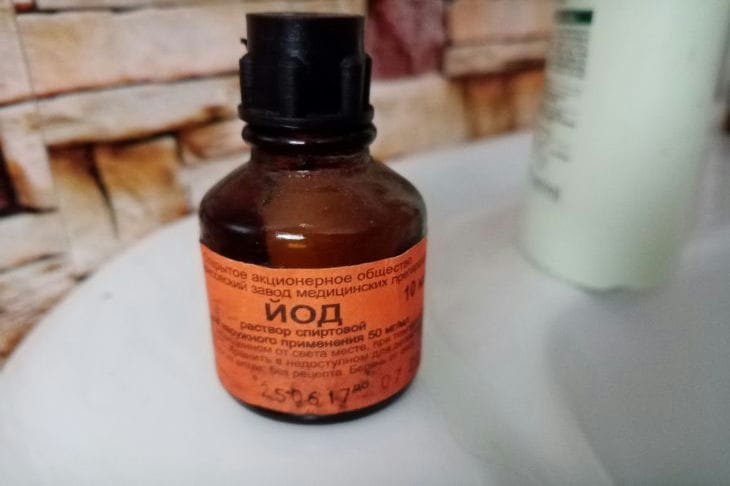How to Use Iodine for Roses: A Magic Elixir for the Queen of Flowers
Iodine is not only an antiseptic for your home medicine cabinet, but also a secret weapon for experienced gardeners.
This element can work wonders in a rose garden, transforming ordinary bushes into lush, healthy plants with bright flowers.
Find out how to properly use iodine to grow luxurious roses.
Benefits of Iodine for Roses
Iodine plays an important role in the life of plants, including roses.
It participates in the process of photosynthesis, promotes the formation of chlorophyll and stimulates the growth of the root system.

In addition, iodine strengthens the immunity of plants, helping them resist various diseases and pests.
The use of iodine improves the flowering of roses, makes them more resistant to adverse weather conditions and prolongs the life of plants.
This element also promotes better absorption of other nutrients from the soil.
Iodine solution for irrigation
The easiest way to use iodine is to prepare a solution for watering. Add 10 drops of iodine to 10 liters of water.
This solution is used to water roses once every two weeks, starting in spring and ending with the flowering period. It is important not to exceed the dosage so as not to harm the plants.
Iodine supplementation
To prepare a nutritious supplement, add 40 drops of iodine and 1 liter of milk to 10 liters of water.
The resulting mixture is infused for 24 hours, after which it is used to water the roses. This feeding is done once a month during the growing season.
Iodine spray for leaves
Iodine solution can be used to spray rose leaves. To do this, add 5 drops of iodine to 1 liter of water and a little liquid soap for better adhesion.
Spraying is carried out in the evening, when there is no direct sunlight.
Iodine treatment for diseases
When the first signs of fungal diseases appear, roses can be treated with iodine solution.
Add 20 drops of iodine to 10 liters of water and spray the plants. This treatment helps prevent the development of diseases and strengthen the immunity of roses.
Rules for using iodine for roses
Before using iodine, it is important to test the plant's sensitivity. To do this, treat a small area of the leaf and observe the reaction for 24 hours.
If there are no burns or other damage, iodine can be used on the entire bush.
Iodine treatments are best done in cloudy weather or in the evening to avoid leaf burns. Iodine should not be used during the period of active flowering, as this can damage buds and flowers.
It is important to observe the dosage and not to abuse iodine treatments. Excess iodine can lead to yellowing of leaves and weakening of the plant.
The optimal frequency of application is once every two weeks for watering and once a month for foliar feeding.
Other Useful Properties of Iodine in the Garden
In addition to caring for roses, iodine can be used for other purposes in the garden. It is effective in controlling pests such as aphids and spider mites.
Iodine solution also helps disinfect garden tools and prevent the spread of infections.
Iodine can be added to water when soaking seeds before planting. This speeds up germination and increases the resistance of future plants to diseases.
Using iodine is a simple and affordable way to improve the health and appearance of roses.
When used correctly, this element becomes a true elixir for the queen of flowers, helping to create a magnificent rose garden to be proud of.
